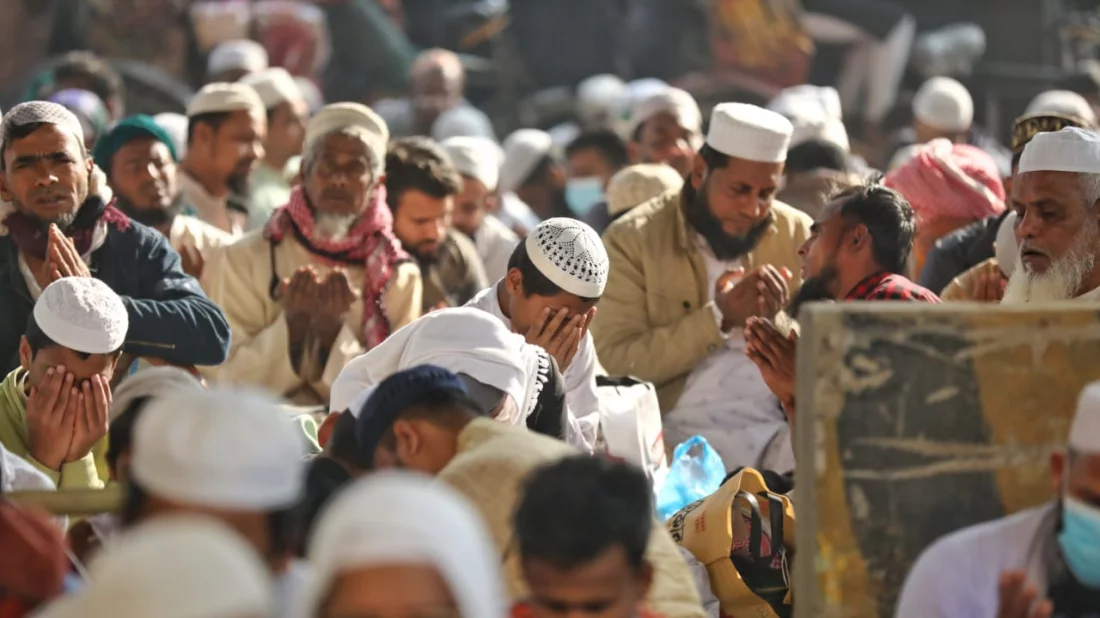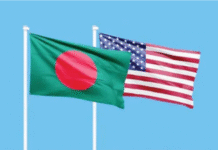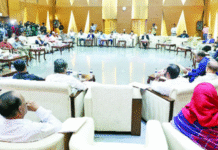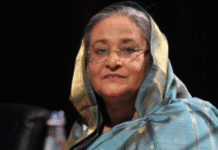In Gazipur’s Tongi, clashes between followers of Maulana Saad and Maulana Zubair have resulted in at least four deaths, as tensions over control of the World Ijtema field continue. Over a hundred people from both sides have reportedly been injured.
On Wednesday afternoon, after separate meetings with the two factions of the Tabligh Jamaat—Maulana Zubair’s followers and Maulana Saad’s followers—held at the Ministry of Home Affairs, Home Affairs Adviser Lieutenant General (retd) Jahangir Alam Chowdhury confirmed the deaths of four individuals.
Earlier, around 3am on Tuesday night, clashes broke out between the two factions over control of the Ijtema ground.
Following the incident, there has been growing curiosity about the reasons behind the ongoing conflict between the two factions of the Tabligh Jamaat.
Sources indicate that the Tabligh Jamaat was founded in 1924 by Maulana Ilyas Kandhalvi of India. Over time, the activities of Tabligh spread beyond India to Bangladesh, Pakistan, and various other countries.
Since the 1960s, followers of the Tabligh Jamaat have gathered every year at the Turag River in Tongi for the World Ijtema, following a specific set of guidelines.
Until 2010, the Ijtema was held in one phase, but due to an increasing number of participants, it was divided into two phases from 2011 onwards.
Followers of Tabligh from around the world, including Bangladesh, participated in both phases, with top scholars from India, Pakistan, and Bangladesh delivering sermons. Among the speakers was Maulana Saad, the great-grandson of Maulana Ilyas Kandhalvi, the founder of Tabligh Jamaat.
However, some of Maulana Saad’s statements during the Ijtema and other Tabligh gatherings have raised objections. These objections were identified by the Fatwa Department of one of India’s leading Islamic institutions, Darul Uloom Deoband.
What Maulana Saad said
According to a 2018 BBC Bengali report, Maulana Saad had suggested some reforms within the Tabligh Jamaat, which led to division within the group.
The report cited his statements, including: “Religious education or propagation should not be done for money,” which was believed to apply to activities like Milad or Waz Mahfil.
Maulana Saad also said: “Teachers of madrassas should pray in mosques, not inside madrassas, to increase interaction with people.”
However, his opponents argue that Maulana Saad’s views contradict the approach followed by the founding leaders of Tabligh Jamaat. They believe his ideas fall outside the beliefs and doctrines of Ahle Sunnat Wal Jamaat.
On the other hand, Maulana Saad’s supporters argue that his proposals for reform were misinterpreted, leading to the Tabligh Jamaat’s activities in Bangladesh being given a “political appearance.”
The division within the largest Sunni Muslim organization in the Indian subcontinent, Tabligh Jamaat, first became publicly visible in November 2017. At that time, a scuffle occurred between two factions at the group’s main center in Kakrail.
Later, in July 2018, a conference was held in Dhaka with the presence of Shah Ahmad Shafi, the Ameer of Hefazat-e-Islam, a madrassa-based organization in Bangladesh. During this conference, decisions were made, including banning Maulana Saad from Bangladesh and other measures.
At the Mohammadpur conference in Dhaka, it was decided that the central leader of Tabligh in Delhi, Maulana Saad, would not be followed, and he would not be allowed to attend the next World Ijtema in Bangladesh.
Further revelations behind the division
Another key issue in the division relates to Maulana Saad’s claim to be the sole Ameer, which has fueled conflict between the two factions.
Sources say that Tabligh Jamaat’s global activities are managed by a supervisory council called the Surah-e-Nizam. According to the council’s rules, when a member dies, a new member must be included. Maulana Saad was a member of this council and had special recognition as the successor of Maulana Ilyas, the founder of Tabligh Jamaat. However, he abruptly broke the council system and declared himself as the sole Ameer, which contributed to the division.
Efforts have been ongoing for several years to resolve the division within Tabligh. In 2018, the rift between the two factions became publicly visible in Bangladesh.
At this time, the faction known as Shuraye Nizam (Maulana Zubair’s followers) declared Maulana Saad undesirable in Bangladesh and demanded his apology and withdrawal of his statements.
Following this, the two factions took opposing positions. The Shuraye Nizam faction held various meetings across the country to clarify why they opposed Maulana Saad, while Maulana Saad’s supporters became known as the “Atayati” or followers.
Although initially the two factions were in direct opposition, the situation became more complex after the December 1, 2018, clash at the Ijtema ground.
Dhaka Tribune










